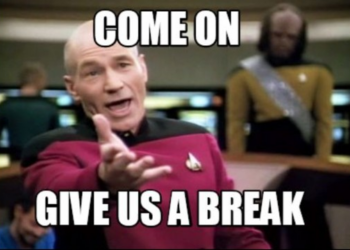According to the American Institute of Men and Boys, men now account for just 23 percent of all U.S. elementary and secondary school teachers. In elementary schools, the number is far lower. Our boys are growing up in classrooms without men.
Meanwhile, the “solutions” for struggling boys sound like bad satire: later start times, more snacks, therapy dogs (I’m not kidding), and “communication of needs,” whatever that means. (RELATED: Reclaiming Education for Boys)
There’s one reform that might actually help: clone Major John Reisman from The Dirty Dozen and put him in a classroom. After that, our boys would be saved.
Let me explain.
If you’ve somehow managed to miss The Dirty Dozen (1967), the film follows Major Reisman — Lee Marvin at his absolute best — ordered to train 12 convicted GIs, some sentenced to death, for a suicide mission behind enemy lines during World War II. The brass despises him, the men fear him, and somehow, through chaos and defiance, he leads them to victory.
He didn’t care what his superiors thought and despised the bureaucracy they hid behind. Watching that movie was a master class in leadership.
When I was a kid, I must’ve watched that movie 50 or 60 times. I recorded it off TV on our old JVC VCR — Scotch tape over the tab — and played it until the tape warped. Reisman’s swagger, the way he led men, his no-nonsense independence had a lasting effect. He didn’t care what his superiors thought and despised the bureaucracy they hid behind. Watching that movie was a master class in leadership. Even as an 11-year-old boy, I sensed it.
Recently, I looked up the “traits of great teachers.” Major Reisman checks every box. If the Department of Education could find a way to put him in front of a classroom, our boys might finally have a fighting chance.
First, he built “autonomy and independence.” The Major didn’t impose hierarchy; he let it emerge naturally. When Maggot (Telly Savalas) humiliated Jefferson (Jim Brown) with a racial slur early in the film, Reisman let the fight play out. Maggot got his teeth kicked in, Jefferson earned the men’s respect, and the unit found its order. Not by the book — but it worked. Reisman let the good guys handle the bully. That’s how boys learn justice and hierarchy in the real world.
He also made his men “feel safe to be themselves.” He didn’t start with icebreakers or “Two Truths and a Lie.” He knew these convicts wouldn’t survive a suicide mission if they felt like victims. He let them hold onto their rough edges and individuality because he understood something today’s administrators don’t: boys can’t unite unless they’re first free to be themselves.
“Belonging” was the core of his unit. When Franco (John Cassavetes) complained about shaving in cold water, the other 11 backed him up. The MPs called it mutiny; Reisman called it progress. His solution? No shaving, no soap, no showers, no hot meals. The men got what they wanted, and Reisman got what he wanted — a dirty dozen. United by rebellion, they became a team.
He was also a master of long vision. When an officer asked why the men didn’t hate the Nazis yet, Reisman shrugged and said, “Maybe that’s because the Germans haven’t done anything to them yet.” He knew hatred wasn’t the point — purpose was. His mission was to turn broken men into soldiers. In a classroom, that’s what boys need too: direction, not therapy dogs.
“Warmth” might not be the word that comes to mind with Lee Marvin, but Reisman cared in his own way. After jump school, he threw his condemned men a party with local women — a strange, almost tender spring cotillion for the damned. I didn’t get it as a kid, but I do now: he was reminding them they were still human. That they mattered. Reisman’s students wouldn’t be headed into combat, but into work, marriage, and fatherhood — battles of their own. He’d prepare them for the mental wars that come after the physical ones.
And he never complained. The whole mission was a bad day, yet the Major never griped. Boys need to see that — teachers who don’t whine. I’ve worked in all-male jobs; we complain plenty. That’s why we’d need Reisman around to keep us in line.
No one ever misunderstood the man. He was a “great communicator.” When Jiminez (Trini López) froze on the rope during training, Reisman grabbed his M3 “grease gun” and cut the rope beneath him. Message received. Climb — or else. Brutal? Sure. Effective? Absolutely.
Reisman taught me what leadership means: take care of your men, and distrust those who don’t. The Army didn’t value him, but he did the job anyway. He saw through hypocrisy, and that’s why the brass sent him on a suicide mission. They wanted him gone. He lived — and they hated him even more.
We’ve still got men like Reisman around, but few of them teach. They look at modern education — its twisted ideologies, its fear of truth, its allergy to masculine energy — and stay away. And who loses? The boys.
Teaching boys isn’t a suicide mission. But if we had a few more men like Major Reisman in our classrooms, it might just save them.
READ MORE from Pete Connolly:
The New York Times Sets a New Low on Israel

![Scott Bessent Explains The Big Picture Everyone is Missing During the Shutdown [WATCH]](https://www.right2024.com/wp-content/uploads/2025/11/Scott-Bessent-Explains-The-Big-Picture-Everyone-is-Missing-During-350x250.jpg)



![American Troops Set for Hard Times After Dems Vote to Block Their Pay Eight Times [WATCH]](https://www.right2024.com/wp-content/uploads/2025/10/American-Troops-Set-for-Hard-Times-After-Dems-Vote-to-350x250.jpg)










